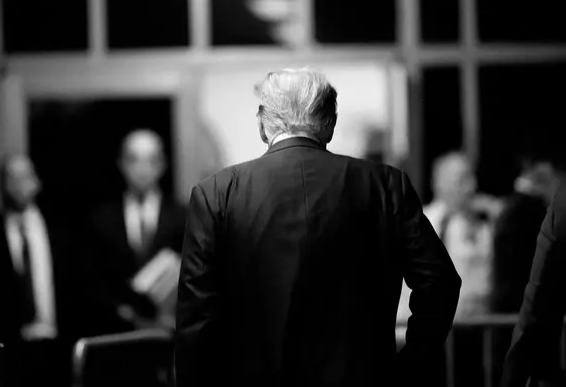Courtesy of the New York Times
By Hank Bartholomew
On January 20, 2025, at 11:00 A.M Eastern Time, Donald J. Trump became the forty-seventh president of the United States. It marks the beginning of a historic term and a potential new direction in American policy. Perhaps what was most telling of how the next four years will look was Trump’s actions in his first day in office.
One of the new president’s first actions was to gut legislation from the Biden’s administration. Trump revoked over seventy of former president Biden’s executive orders and legislation, many of which involved Diversity Equity and Inclusion efforts and attempts to tackle the climate crisis. It’s a strong indication that this current presidential term will not maintain much of a focus on across-the-isle legislation or efforts to bridge the gap between conservatives and liberals.
Soon after, Trump issued an executive order titled “Restoring Freedom of Speech And Ending Federal Censorship.” The legislation claims that the Biden administration limited the ability of the American public to speak their mind, and calls for immediate remedial action. Most likely, the order stems from Biden’s efforts to limit misinformation on online platforms such as Facebook and YouTube. Critics have suggested that this action may have the additional purpose of allowing many of the tech magnates that Trump has become cozy with to have greater freedom with regard to how they run their programs.
One of the president’s most shocking actions was his withdrawal of the United States from a variety of climate legislation agreements, most notably the Paris agreement. On the campaign trail, Trump has repeatedly suggested that such accords have had debilitating effects on the American economy, and that the nation’s withdrawal from these agreements is the only way to allow American businesses to reach their full potential. With brutal wildfires still raging in California, the move has drawn sharp criticism from liberals in congress.
Quickly after, Trump pardoned over 1,500 of the January 6th insurrectionists who stormed America’s capital following Trump’s loss to Biden in 2020. While expected, the decision was nonetheless shocking; pardons on such a large scale are unheard of. Most likely, the pardons symbolize a gathering conflict between the White House and the Justice Department and legal system.
Moments later, the president withdrew, via executive order, the United States from the World Health Organization, or WHO. The United States has been a leading member of the WHO since its founding in 1948, and the move may have drastic consequences both abroad and at home. Internationally, the withdrawal symbolizes an effort to move the United States to a relatively isolationist position. Trump has been a long-time critic of international organizations, arguing that the funding the United States often puts in is not equivalent to the results and support provided in return. It is possible that the WHO was just the first target on a long list. Domestically, the withdrawal represents a movement by the administration to reform American healthcare practices and policies. With Robert Kennedy Jr., a prominent advocate of anti-vaccination measures, at the helm of the Department of Health and Human Services, it is not illogical to assume that much of America’s health policies may also see drastic change.
Trump also issued a proclamation “Declaring a National Emergency at the Southern Border.” The declaration calls for increased military personnel and barriers at the border between the United States and Mexico, and is most likely a first step in the President’s efforts to pursue the mass deportations he has called for while on the campaign trail.
With regard to economic policy, the new president signed a memorandum labeled “America First Trade Policy,” which calls for actions to limit “unfair and unbalanced trade,” presumably via tariffs. Tariffs on foreign nations, particularly China, were a key part of Trump’s message while campaigning, and it’s quite possible that this memorandum was the first attack in a long trade war with the foreign power.
Focusing on the American economy, Trump then issued an executive order titled “Unleashing American Energy,” which calls for the review and removal of Biden-era policies intended to limit climate change. In particular, the order frees up coal-burning and fossil-fuel consuming corporations to continue their practices unhindered. According to the new administration, doing away with prior environmental regulations will “unleash” the American economy and stimulate vast American economic growth. However, critics and economists alike have warned that the removal of Biden’s environmental policies, which created hundreds of thousands of jobs in the green energy sector, may in fact have adverse economic consequences.
Perhaps the most shocking action taken by the nation’s new leader was his executive order attempting to redefine birthright citizenship. Titled “Protecting the Meaning and Value of American Citizenship,” the order argues that citizenship should not apply to individuals born in the United States to an illegal or non-permanent mother and father. The statement is a shocking contradiction of the 14th Amendment, which in 1868, declared that “All persons born or naturalized in the United States, and subject to the jurisdiction thereof, are citizens of the United States and of the State wherein they reside. No State shall make or enforce any law which shall abridge the privileges or immunities of citizens of the United States; nor shall any State deprive any person of life, liberty, or proper.” The open contradiction of a long-time staple of the American Bill of Rights has already raised concerns; the executive order is already being challenged in court, and Democrats have labeled the statement a violation of presidential power.
The second Trump presidency is still in its infancy, but many of its main promises and objectives are starting to truly come into focus. Still, all that is clear is that nothing is certain in the next four years.

